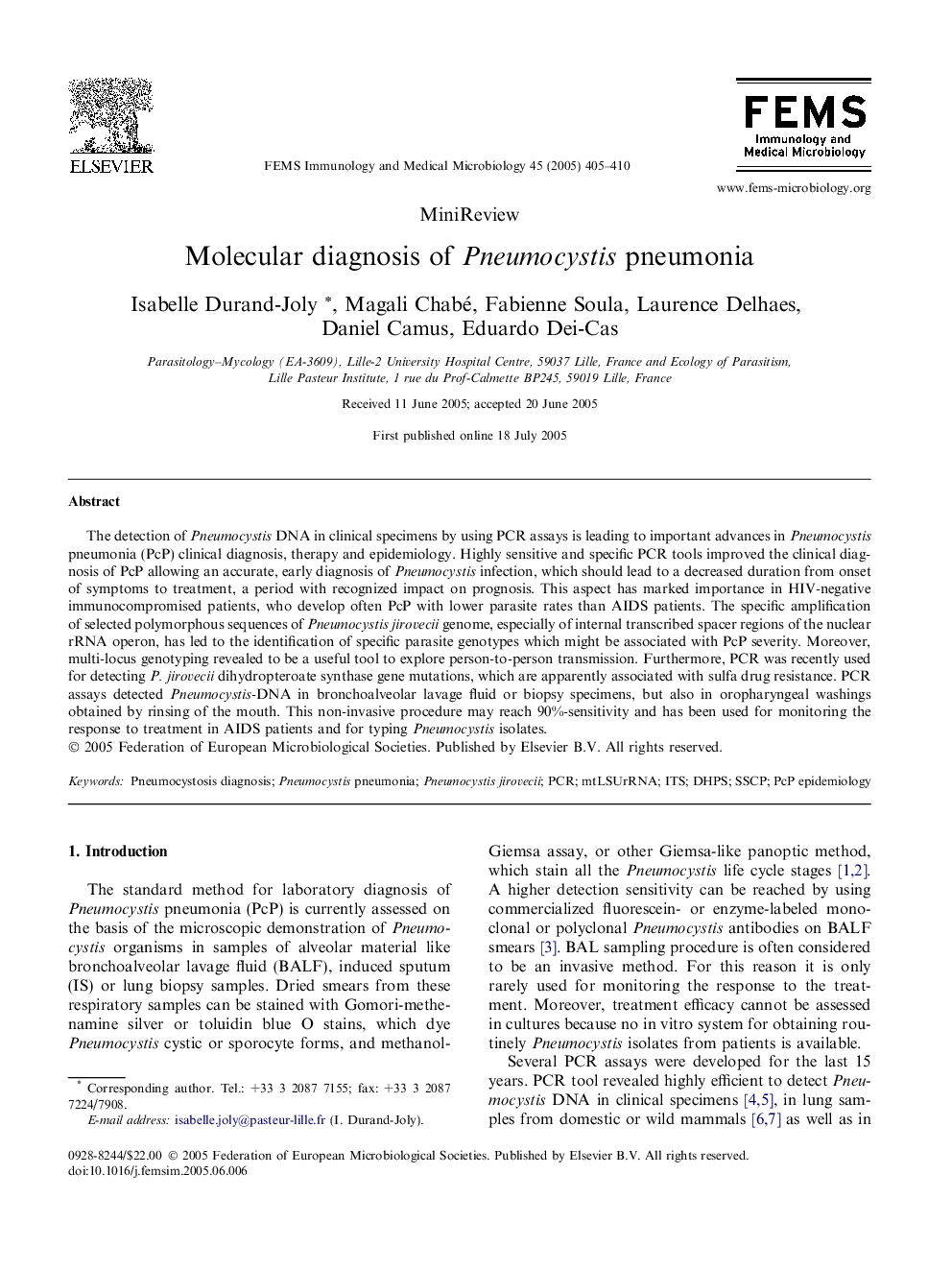| Article ID | Journal | Published Year | Pages | File Type |
|---|---|---|---|---|
| 9277957 | FEMS Immunology and Medical Microbiology | 2005 | 6 Pages |
Abstract
The detection of Pneumocystis DNA in clinical specimens by using PCR assays is leading to important advances in Pneumocystis pneumonia (PcP) clinical diagnosis, therapy and epidemiology. Highly sensitive and specific PCR tools improved the clinical diagnosis of PcP allowing an accurate, early diagnosis of Pneumocystis infection, which should lead to a decreased duration from onset of symptoms to treatment, a period with recognized impact on prognosis. This aspect has marked importance in HIV-negative immunocompromised patients, who develop often PcP with lower parasite rates than AIDS patients. The specific amplification of selected polymorphous sequences of Pneumocystis jirovecii genome, especially of internal transcribed spacer regions of the nuclear rRNA operon, has led to the identification of specific parasite genotypes which might be associated with PcP severity. Moreover, multi-locus genotyping revealed to be a useful tool to explore person-to-person transmission. Furthermore, PCR was recently used for detecting P. jirovecii dihydropteroate synthase gene mutations, which are apparently associated with sulfa drug resistance. PCR assays detected Pneumocystis-DNA in bronchoalveolar lavage fluid or biopsy specimens, but also in oropharyngeal washings obtained by rinsing of the mouth. This non-invasive procedure may reach 90%-sensitivity and has been used for monitoring the response to treatment in AIDS patients and for typing Pneumocystis isolates.
Related Topics
Life Sciences
Immunology and Microbiology
Immunology
Authors
Isabelle Durand-Joly, Magali Chabé, Fabienne Soula, Laurence Delhaes, Daniel Camus, Eduardo Dei-Cas,
